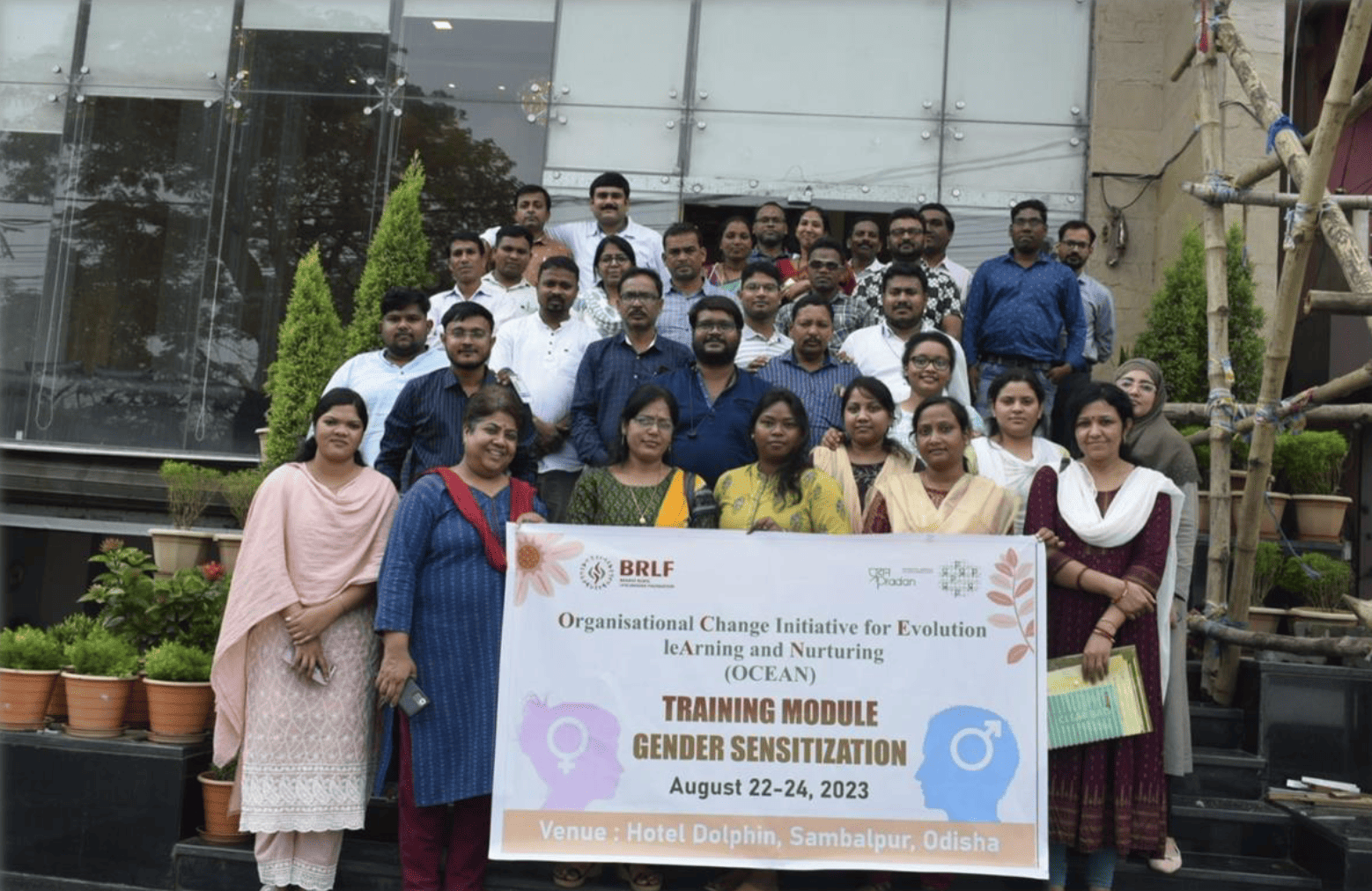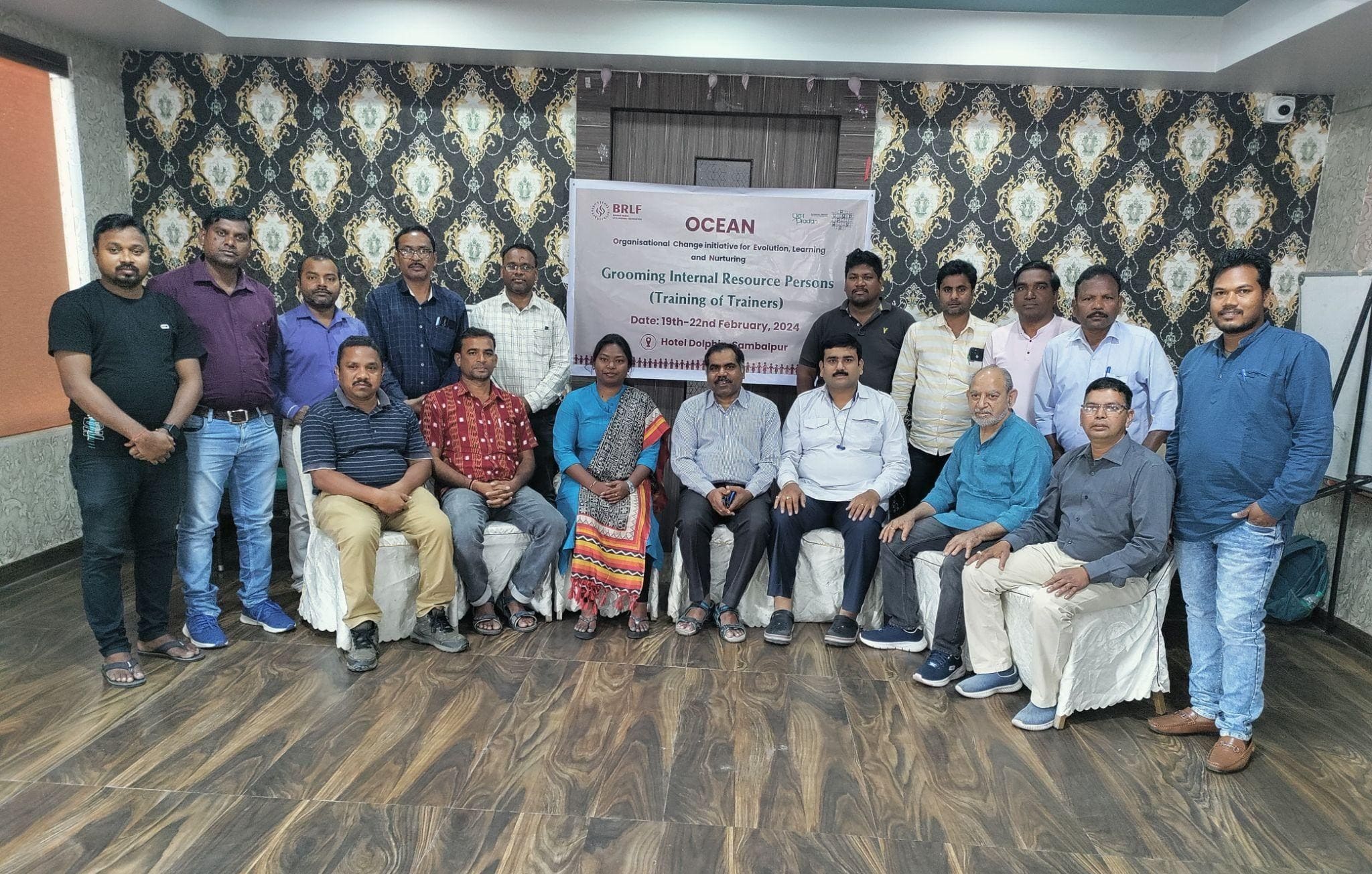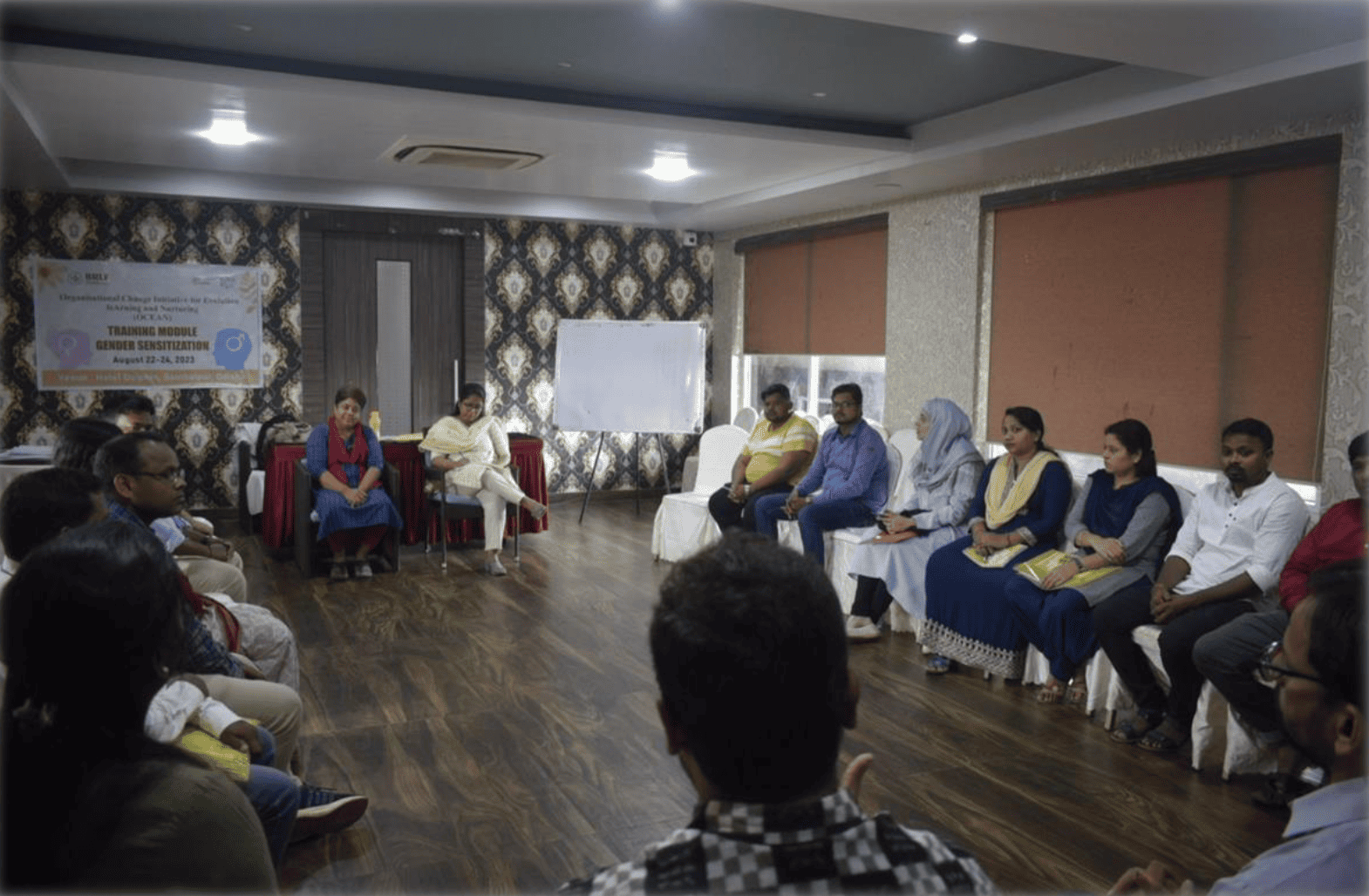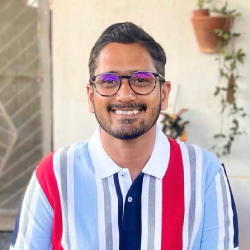Investing in NGOs: Taking the road less travelled

Satish Patnaik, Integrator, PRADAN and
Pranamesh Kar, Assistant District Coordinator, PRADAN
The Expanding Footprint of NGOs in India
As of late 2023, the NGO‑Darpan platform (administered by NITI Aayog) reports approximately 187,395 officially registered NGOs in India, which are those typically eligible for government funding (https://ngodarpan.gov.in/#/). This staggering number underscores the sheer breadth and depth of civil society’s presence in India’s development landscape.
The roots of India’s NGO ecosystem trace back to the early 19th century, when social and humanitarian concerns—often tied to reform movements addressing caste discrimination, child marriage, and the promotion of education—led to the emergence of early organizations. During the colonial era, institutions like the Brahmo Samaj and Arya Samaj laid the groundwork for organized social action. After independence in 1947, the landscape broadened significantly. Organizations like the Ramakrishna Mission expanded their focus to include education, healthcare, and rural development, especially across eastern and southern India. Over the decades, such organizations have cultivated a strong contextual understanding of rural distress and developed innovative, locally grounded models to tackle complex socio-economic challenges.
In recent years, however, the role of NGOs has undergone a subtle but significant transformation. Beyond their traditional modes of engagement, many organisations mandated to work in the domain of livelihoods are now participating in large-scale, multi-stakeholder development programs in a supporting role. These are often designed and driven by funding agencies or embedded within flagship government schemes, positioning NGOs as key implementation partners in cross-regional efforts.
For instance, the High Impact Mega Watershed Project in Chhattisgarh—a four-year collaboration between the Government of Chhattisgarh, Axis Bank Foundation, and Bharat Rural Livelihoods Foundation (BRLF)—is being implemented by a consortium of 13 NGOs, facilitating land and water treatment measures across 694,500 hectares in 26 blocks across 12 districts. The initiative aims to improve cropping intensity over approximately 350,000 hectares and enhance the sustainable incomes of 100,000 small and marginal farmers—over 40 percent of whom belong to Scheduled Tribes.
Similarly, in Jharkhand, the Jiwi Daah Hasa (Life~Water~Earth) initiative under the High Impact Mega Watershed Project is a collaboration between the Department of Rural Development, Government of Jharkhand, and the MGNREGA cell. Implemented in partnership with 11 NGOs, the initiative spans 7 districts, 24 blocks, 207 panchayats, and 1,359 villages. Spearheaded by BRLF, it aims to create NRM-based assets through watershed principles to generate sustainable livelihood opportunities.
Odisha’s Agriculture Production Clusters in tribal regions offer another example. This initiative is a collaboration between the Department of Panchayati Raj & Drinking Water, Government of Odisha, Mission Shakti, BRLF, District Mineral Foundations, and PRADAN. Spanning 73 blocks across 14 districts, it has benefitted 1,96,723 women farmers.
While these programs offer scale, visibility, and the promise of accelerated transformation, they also present complex operational challenges—ranging from coordination among multiple stakeholders to the integration of diverse thematic areas. Moreover, the push for efficiency and speed often leaves little room for spending time in communities, understanding their unique contexts, building trust, and allowing people to take charge of their own development journey.
Challenges in Institutional Strengthening and Human Resource Development
Two key considerations deserve our attention. First, although standardized unit models promote scalability and consistency, they can inadvertently overlook diverse local realities—precisely the “last‑mile” challenges that NGOs are best equipped to address. In practice, a uniform approach may constrain the impact of interventions across varied geographies and populations.
Second, while performance and delivery metrics rightly remain central to program implementation, we often underinvest in strengthening the institutional capacities of participating NGOs such as leadership development, managing resources, and internal knowledge processes. A more deliberate, long‑term focus on building these capabilities would significantly amplify both the reach and resilience of our development efforts.
While many organizations recognize the importance of structured human resource development, they frequently grapple with internal constraints such as limited personnel, scarce financial resources, and challenges in sustaining motivation. Like any other sector, NGOs face high attrition rates, challenges in attracting and retaining quality talent, and a dearth of robust mechanisms to support continuous professional development.
These challenges are particularly pronounced for smaller, community-based organizations that typically operate in one or two districts of a state, with fewer than 50 professionals and an annual turnover of less than INR 1–2 crore. Often located in remote areas, these organizations often lack in-house systems for staff development, and while online courses are increasingly available, they are not always suitable. Many effective capacity-building programs—such as human process labs or immersive training modules—are designed to be highly interactive and rely on in-person dynamics. The cost of participation, including travel, stay, and logistical arrangements, often makes them financially and operationally inaccessible for many. This creates a persistent gap: NGOs are committed to delivering high-quality, professional work, but often lack the support systems and resources needed to build and sustain internal capacity. Addressing this gap could lead to the recruitment and retention of high-quality professionals, enhance the technical competencies of NGOs, and enable them to deliver large-scale, complex development programs more effectively—ultimately making the sector more capable, responsive, and impactful.
The Urgent Need for Mentorship and Strategic Investments
Our observations suggest that many NGOs struggle to meet programmatic objectives with their existing human resources. The problem is deep rooted; limited self-motivation among staff, and a high rate of attrition among professionals working in the sector. In their pursuit of purpose, NGOs are increasingly caught between the competing demands of staff development, donor expectations, and community impact.
For NGOs engaged in multi-stakeholder projects, the operational challenges can be particularly complex. Often, these organizations have to shift their energy on being a service provider—focusing heavily on financial compliance and meeting tight deadlines—rather than as holistic development actors. For instance, in the current scenario, a frontline worker juggling reporting requirements and fund utilization deadlines may find little time to visit the field, engage meaningfully with communities, or reflect on program learnings. Limited organizational bandwidth and inflexible frameworks make it difficult to prioritize long-term outcomes. As a result, critical areas like innovation and human resource development are frequently sidelined, since both require sustained investments of time, funding, and mentorship.
In a results-driven ecosystem that emphasizes quick and measurable outputs, enabling long-term mentoring support for NGOs remains a significant yet under-addressed need. Nurturing an environment that values professional growth through mentoring could greatly enhance the effectiveness and resilience of civil society. It invites deeper questions: What makes for a meaningful mentoring relationship? What role should organizations play in fostering such relationships? And how can mentoring strengthen the sector over time? Exploring these questions could open up new avenues for building a more robust and future-ready development ecosystem.
Investing in the holistic capacity building of NGOs often takes a backseat, primarily because it demands both time and sustained resource commitments. This gap is observed not only within NGOs but also across the broader development ecosystem. While some of these initiatives do support the development of technical and human-centric skills—such as improving monitoring and review systems—such efforts remain narrowly tied to project-specific goals. The broader idea of consistently investing in human resources within NGOs is rarely prioritized. Even in instances where such investments are made sporadically, they tend to have limited long-term impact due to the absence of continuity and deeper integration into organizational processes.
Strengthening Leadership for Sustained Impact
NGOs play a crucial role in bridging the gap between Samaaj (society), Sarkaar (government), and Bazaar (market) systems by acting as facilitators, knowledge hubs, and service providers. They mostly act as intermediaries between the state, market, and society, by facilitating dialogue, empowering communities, championing for social development and providing essential service delivery at grassroot level. Hence looking at the multifarious and vital nature of engagement, a systematic investment in strengthening the institutional systems of NGOs has become very much crucial at present.
Some funding agencies and NGOs have begun piloting new models to address the institutional capacity challenges faced by NGOs. One such effort is the Organizational Change Initiative for Evolution, Learning, and Nurturing (OCEAN)—a collaborative program launched by BRLF and PRADAN in January 2022. Designed to support long-term organizational development, the initiative began with a series of consultations involving NGOs operating in Odisha and Chhattisgarh. These meetings, facilitated by BRLF and PRADAN, created space for NGO partners and lead agencies to surface critical internal challenges related to leadership, staff development, and operational sustainability.

Photo: A training session on Gender Sensitization under OCEAN
Recognizing that many organizations have struggled to invest adequate time and resources in the long-term development of their employees, resulting in ambiguity around roles and blurred understanding of development interventions, the OCEAN initiative emerged as a strategic response. A collaborative effort between BRLF and PRADAN, the initiative focused on the capacity building of the staff members of the NGOs engaged in the Promotion of Agriculture Production Clusters in Tribal regions of Odisha (APC) project, specifically on themes of organizational development. Under this partnership, BRLF provided financial support for the events, while PRADAN anchored the design and on-ground facilitation of the engagements. The initiative was implemented over a two-year period, from January 2022 to March 2024.
Initially, the program aimed to engage 60 employees across 12 NGOs over two years. Ultimately, 50 professionals from 10 organizations like Balangir Gramodyog Samiti (BGS), Jana Mukti Anusthan (JMA), Sambalpur Integrated Development Institute (SIDI), Social Education for Women's Awareness (SEWA), Janasahajya, Sramik Shakti Sangathan (SSS), Vikalpa, Adhikar, Lokadrusti, and Youth Council for Development Alternatives (YCDA) successfully completed the program, which indicates the trend of high attrition of the sector as well as enhanced understanding of self and organisation propelled them for better pastures. Importantly, the initiative has now groomed 20 internal resource persons (two resource persons per participant organization), enabling them to serve as catalysts for sustained organizational learning within their respective NGOs. This model holds promise not just as a training intervention but as a replicable framework for fostering long-term mentoring and institutional strengthening in the civil society ecosystem.
OCEAN’s Approach: Nurturing Learning Organizations
The immersive training modules under the OCEAN initiative were designed with a holistic vision to empower and equip NGOs with essential organizational development competencies. The core objectives included:
- Empowering NGOs through Human Processual themes, such as group functioning, communication and connection management, employee motivation mapping, improved writing skills, and facilitation of group processes.
- Transforming NGOs into ‘Learning Organizations’—entities that continuously expand their ability to generate desired outcomes, nurture new ways of thinking, foster collective aspirations, and cultivate an environment of shared learning. Key themes included gender sensitization and perspective building on livelihoods.
- Building sustainable organizational presence through visioning and strategic action planning to ensure a long-lasting impact in their geographies.
To bring this vision to life, the initiative followed a participatory and experiential learning model through small-group engagements. Each cohort of the training program consisted of 20 NGO professionals and on an average 2 such events were conducted per quarter under OCEAN initiative.

Photo: A glimpse training session under OCEAN initiative
Key thematic pathways included:
The initiative focussed upon three major silos for engagement based upon experience of PRADAN. The first one was team and groups where modules on Group Functioning, Communication and Connection, Visioning and Action Planning were conducted. The second silo was on motivation of staffs and it involved practice trainings on Employee Motivation, Facilitation of Group Processes, Gender Sensitization, Perspective Building on Livelihoods, and the third silo was on preparing NGOs for future which involved Grooming of Internal Resource Persons (Training of Trainers), learning writing skills, with a strong emphasis on mentoring and peer learning networks.
“After the OCEAN training, our BGS professionals have enhanced their day to day activity like trust building, mutual understanding with professionals and community, they are involved in decision making, better utilized their skills in the workplace. Now professionals share their problems and confusions regarding work without hesitation, thus there is an increasing cooperation among the professionals not only professionally but also individually-” shared a participant from BALANGIR GRAMODYOG SAMITI (BGS).

Photo: A glimpse training session under OCEAN initiative
Through their participation in the OCEAN initiative, NGOs reported noticeable improvements in both organizational performance and individual capacity. Organizations were better able to articulate their ideas and showcase their skills across various forums and diversified projects.
Through peer learning and collaboration, participants gained confidence—particularly in writing proposals for community development projects, delivering them effectively, and mentoring younger colleagues
Several NGOs also initiated internal changes that aligned with their broader organizational vision and mission. These included team-building exercises, onboarding new talent, and actively inducting women colleagues into their workforce. Collectively, these efforts signify a shift toward stronger, more resilient organizations capable of driving meaningful change while nurturing inclusive and sustainable growth.
Participant Reflections:
“After OCEAN sessions, gender policy was discussed in our organization and a posh committee has been constituted and meetings on POSH have been regularized on a quarterly basis ever since. We are also consciously working towards inducting more women colleagues in the organisation”, shared a participant from SEWA.
“Quantity of work done in the team as compared to past performance has grown significantly. Activities like mobilization of shareholders was 612 last year which has increased up to 2,610 and likewise the business turnover of the farmer producer company promoted under APC project has grown from INR 20 lakh to around INR 50 lakhs post OCEAN event”, shared a participant from Shramik Shakti Sangha (SSS)
“The training emphasized the role of leaders in actively creating a climate that encourages continuous learning, stimulates creativity, and provides the necessary support for individuals to fulfill organizational goals. As a result of the training, the participating IRPs internalized these principles and, upon completion, actively implemented the same practices within their respective teams and organizational contexts.”, shared a participant from Vikalpa.
“Team performance for achieving goals is very useful for the organisation. By this training the quality of work output has been improved and staff are paying attention to completion of work within the time frame which has impacted work efficiency of our organization.”, shared a participant from Lokadrusti.
The Road Ahead: Sustaining Momentum Through Long-Term Engagement
Participating NGOs have emphasized the need for continuity in such initiatives. A key area identified for further strengthening is reporting and compliance, which remains a critical aspect of effective program delivery. Based on the experiences so far, there is a clear demand for structured systems that allow for regular reflection, feedback, and adaptive learning.
To build robust organizational competencies, NGOs also recognize the importance of connecting with peer networks and sectoral experts. While the OCEAN initiative by BRLF and PRADAN spanned two years, it is believed that meaningful, process-oriented engagement requires a longer horizon—ideally at least five years. Any investment on human resource development impacts persons involved in multiple angles creating individual and community resilience as self-discovery and sense of community with a clear vision often helps in career goals as well as steering organisation pathways. Hence forming active cohorts for periodic discussion and shared learning post-intervention is vital to ensuring sustained impact and institutional resilience. Such cohorts help in practice of learning, nurtures feedback and helps in shaping models for better engagement within organisation. These cohorts have potential to become practice groups of organisation change and self-development.
Investing in the Future of Civil Society Organizations
As the donor/funding landscape evolves and community expectations grow more nuanced, NGOs are increasingly required to engage highly skilled professionals to ensure robust organizational performance. This calls for a strategic shift in human resource practices—centering on human-driven processes and transformational approaches. Continued investment in this space is crucial for the sustainability of organizational development efforts.
The Companies Act of 2013, through Section 135 and the Companies (Corporate Social Responsibility) Rules of 2014, along with Schedule VII, mandates corporations to fulfill specific CSR obligations. This legal framework offers a significant opportunity to support such as human resource capacity building initiatives. Corporations should be encouraged to recognize the long-term value of mentoring and capacity building within NGOs and extend necessary support to amplify their community impact.
This document is both a reflection and an appeal—to funding agencies, program leaders, governments, and NGOs—to commit to strengthening the institutional backbone of India’s civil society. Investing in organizational development is not a one-time intervention but a strategic imperative for creating resilient, visionary, and impactful NGOs.
Weblink to the OCEAN initiative Report:
https://drive.google.com/file/d/1VfBa3zBDyeoRAN6rCAFXoFf6J2b26W3p/view?usp=sharing
Link to Project Portals:
https://www.pradan.net/high-impact-mega-watershed-project-in-chhattisgarh/
About the Author



